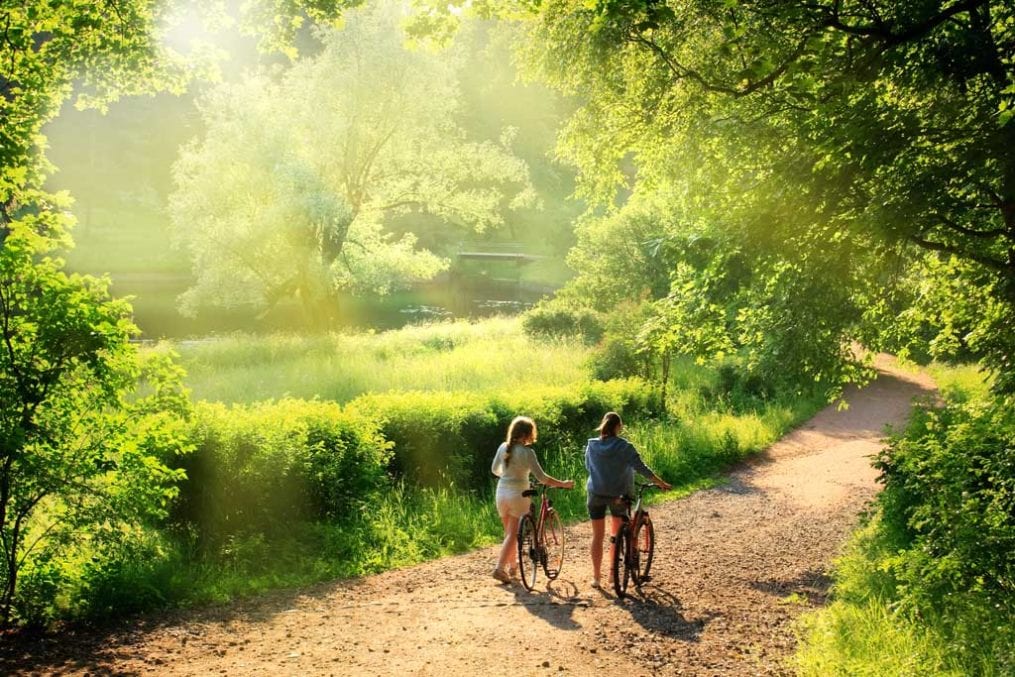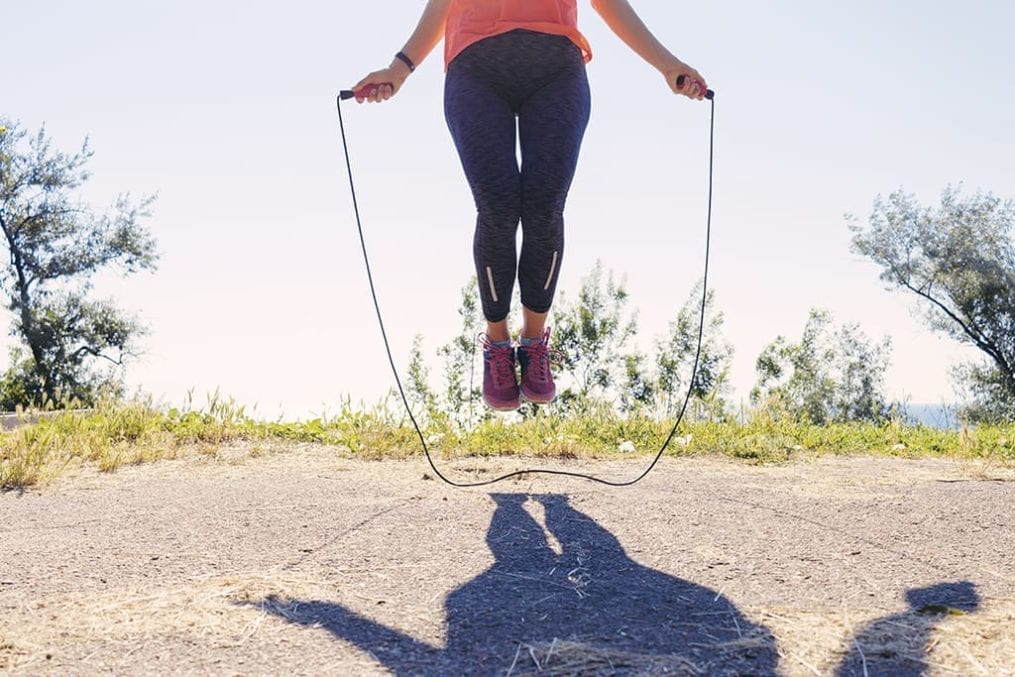Maximise the wellbeing benefits of getting outdoors

For many of us who’ve spent more time cooped up in our homes than ever over the past few months, heading out to our local park and spending some time in nature has offered a much-needed wellbeing boost. And research repeatedly demonstrates that people who spend more time in green spaces are happier. This might be because, as slow-living advocate and author of In Praise of Slow, Carl Honoré points out, ‘Nature is immune to impatience, always doing things at its own pace.’
Tuning in to the natural world is also one of the easiest ways to become mindful. ‘Nature is very grounding. When we are flying around in our heads, it literally brings us back down to earth,’ explains mindfulness-based cognitive therapist Mita Mistry. If we try to pinpoint when we’re most relaxed, it’s probably on a beach, listening to waves lapping on the shore, or laying on the grass watching the clouds float by. A 2019 study found that woodland sounds like birdsong and rustling leaves are more relaxing than mediation recordings.
And if the closure of gyms led you to take up to cycling or running during lockdown, it might interest you to know that the health benefits of getting outdoors include your physical fitness. A scientific review of studies published in the journal Extreme Physiology & Medicine in 2013 concluded that when we exercise in natural environments, we don’t feel as though we’re pushing ourselves as much, so we work out harder than we would do in a gym, our blood pressure returns to normal much faster, levels of stress hormones such as cortisol and adrenaline drop right back to normal levels, our immune systems improve and it gives us a good mood boost, among many other benefits.
Find your friluftsliv
It is perhaps a fundamental appreciation for the health benefits of the great outdoors in Scandinavian countries that makes them some of the happiest places to live on the planet. The Norwegian word friluftsliv means ‘free air life’, but it is much more than simply spending time outdoors. The phrase first appeared in 1859 in a poem by Norwegian playwright Henrik Ibsen, On The Heights, which described a feeling of craving to be outside in nature. ‘Friluftsliv is about feeling the joy of being out in nature, alone or with others, experiencing pleasure and harmony with the surroundings,’ says friluftsliv expert Børge Dahle in Nature First: Outdoor Life And The Friluftsliv Way (Natural Heritage, £15.99).
Long walks at the weekends – or Søndagstur, which specifically refers to a Sunday trip to the mountains, forest or islands for a hike – are one of the key ways Norwegians enjoy friluftsliv. But Honoré, who himself lives in London, argues that wherever you live, you can connect with the natural world. ‘Not everyone has access to vast forests or sweeping valleys, but all of us can tap into nature in some way. Strolling in a park and looking at the tress, can slow and calm us.’ Mistry suggests walking barefoot on the grass, if you can. ‘It’s calming, as there are acupuncture points on the soles of our feet.’
Take a tech break
How else can you get your friluftsliv on? Obviously getting outside is key, but it’s important to immerse yourself in the experience, so don’t be tempted to take ‘nature selfies’. ‘Tourists often consume places without becoming emotionally connected with them, as their purpose is simply to have seen it,’ says Hans Gelter, a friluftsliv guide and professor at Luleå University of Technology in Sweden. If you’re only visiting a certain beauty spot because you know it gets loads of likes on Instagram, then you’re missing the point.
Try to keep your experiences outdoors as minimal as possible, too. Dahle says, ‘The essence of friluftsliv is the simplicity with which people can engage in nature in a meaningful way, without the trappings of expensive gadgets or equipment.’ In other words, the less gear you have, the more you’ll enjoy it. Leaving the Bluetooth earpiece at home and listening to your surroundings can have a profound effect. ‘Reconnecting with nature sharpens your senses and clears mental clutter,’ says Mistry. ‘It’s possible wherever you live – even in urban areas, the sky, clouds and sun are available to all.’











